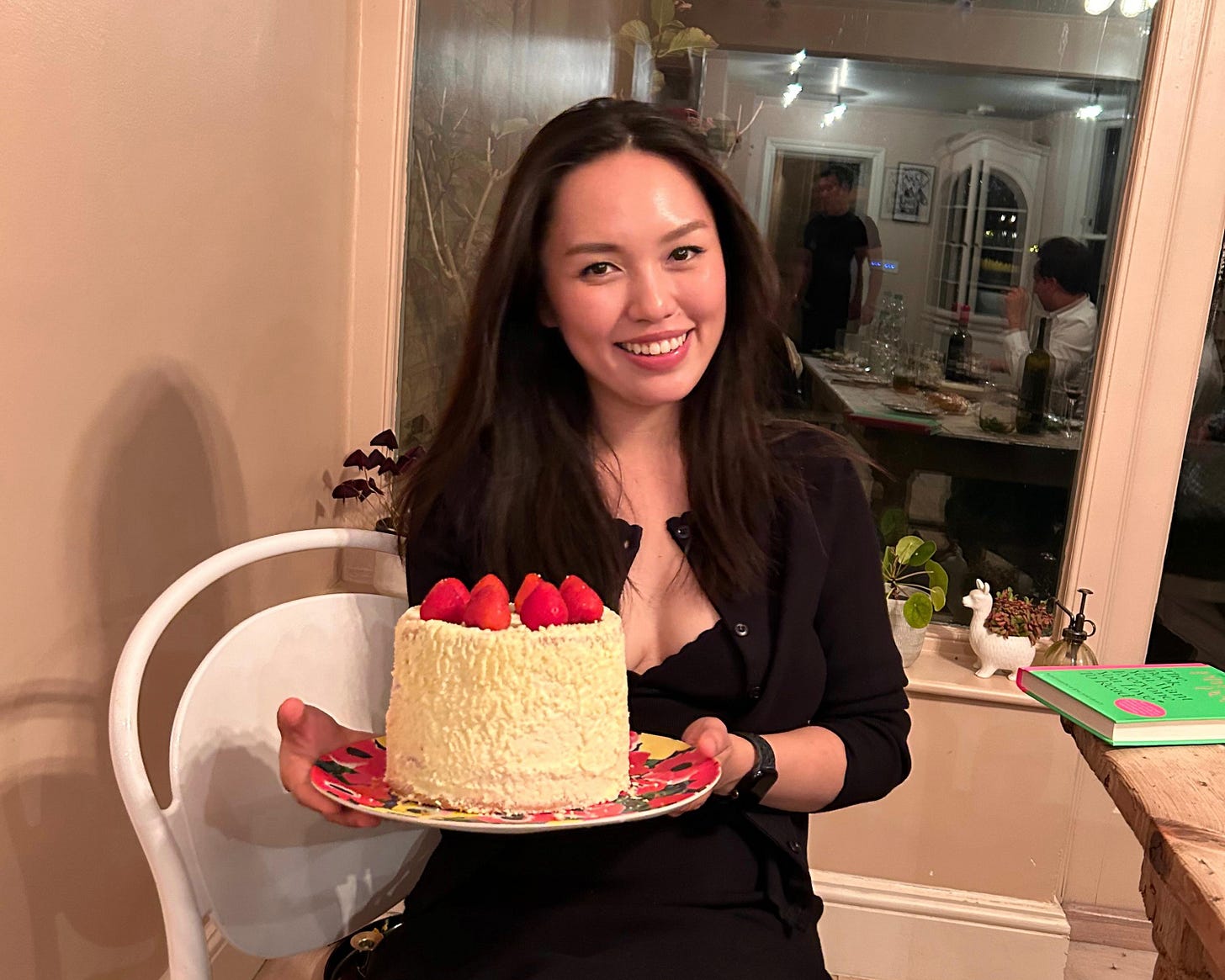“How can you let strangers in your place?”
Someone asked me this once, genuinely concerned for my safety. I’ve been renting out a spare room through Airbnb for the past two years, and I get where the worry comes from. But here’s the thing: I’ve always been a bit of a risk taker.
Moving from Hong Kong to Shanghai was a career gamble based purely on intuition. Leaving behind a stable corporate job to relocate to London? Another leap of faith.
Hong Kong.
My family home is about 1.5 hours from the city. As someone who used to bike to school for most of my life, I really struggled with the long commute, especially squeezing into a packed train at 7 a.m. I guess I’ve always had a bit of claustrophobia.
To fix that problem, I started renting in the city. I tried both flat shares and living on my own. There was a time when I deliberately forced myself to live in a tiny shoebox apartment, just to remind myself:
This is how much I’m earning now. If I want a better lifestyle, I need to work for it.
Meanwhile, my life looked completely different on the outside. I was attending glamorous fashion events. Prada, Fendi, Tiffany & Co., you name it.
I didn’t feel insecure about the contrast. I genuinely enjoyed the free canapés from five-star hotels, meeting fascinating people, and taking selfies with childhood celebrities.
Shanghai.
I found two of the three places I lived in Shanghai through Airbnb, except for the second one.
My second place in Shanghai was inside a chaotic commercial building on a busy main road. Two agents showed me the flat. One woman was fine, but the man chain-smoked cheap cigarettes and spoke in a way that instantly put me off. That kind of energy ended up bleeding into the experience of living there.
At the time, I didn’t think the building itself mattered. I thought if the inside of the flat looked decent, I’d be fine. I was wrong.
By the end, they tried to keep more of my deposit than they were supposed to. I still remember standing in the flat, arguing with them and refusing to leave until it was resolved.
The one good thing? The place was big enough to fit a giant cat tree, which Dobby and Macey absolutely adored.
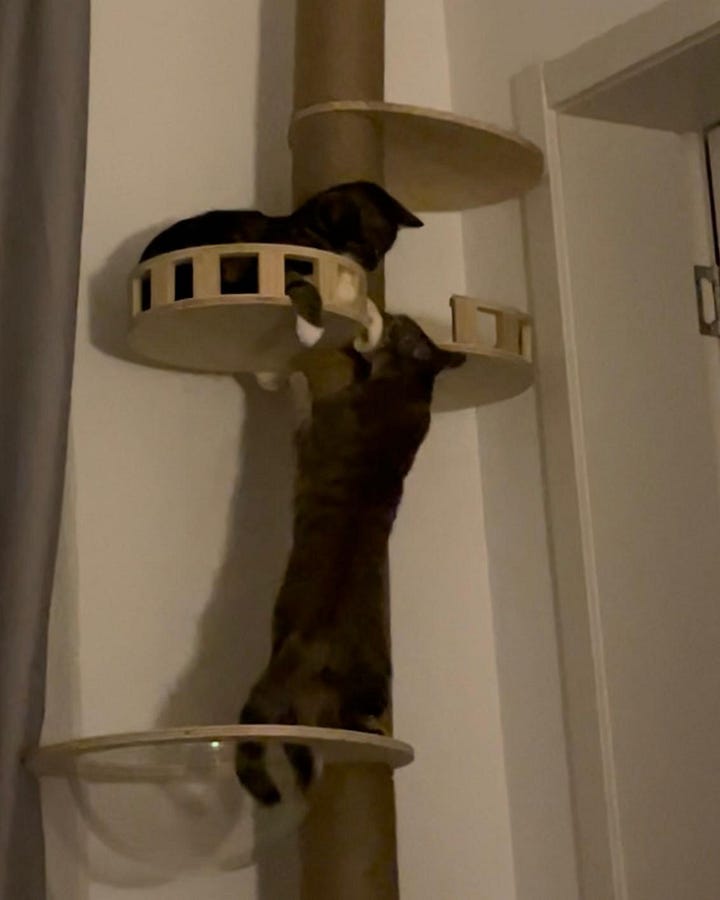
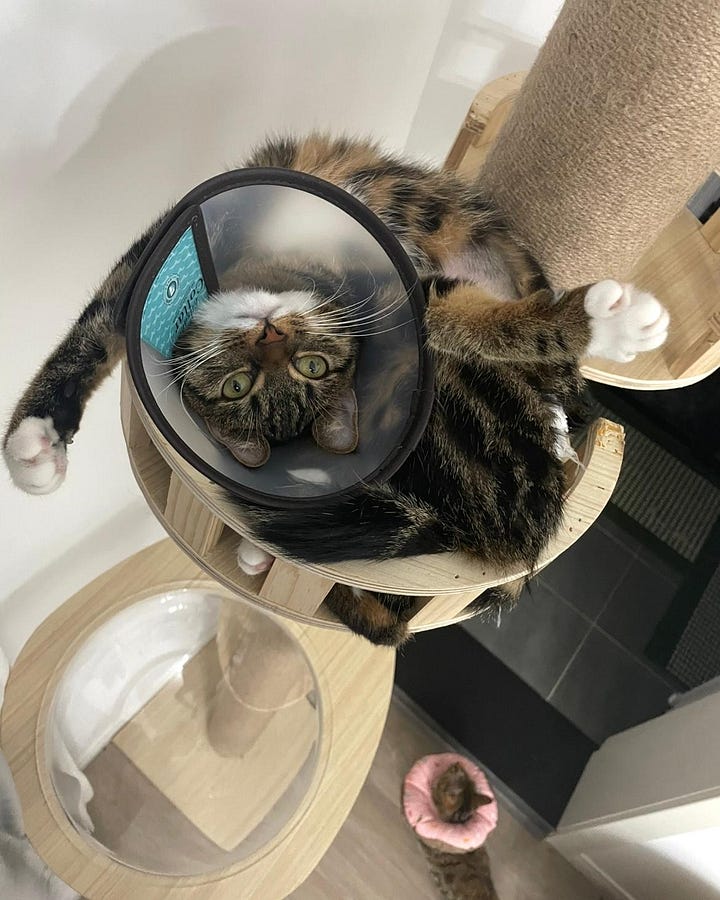
The last place I lived in Shanghai was in the French Concession. It was originally listed on Airbnb for short-term stays, but I ended up signing a long-term contract directly with the host.
I loved being surrounded by the old plane trees planted in 1902. They gave the whole neighborhood a soft, distinctly Parisian feel.
My cats clearly enjoyed that apartment too, especially the little balcony where they could sunbathe and watch the world go by.
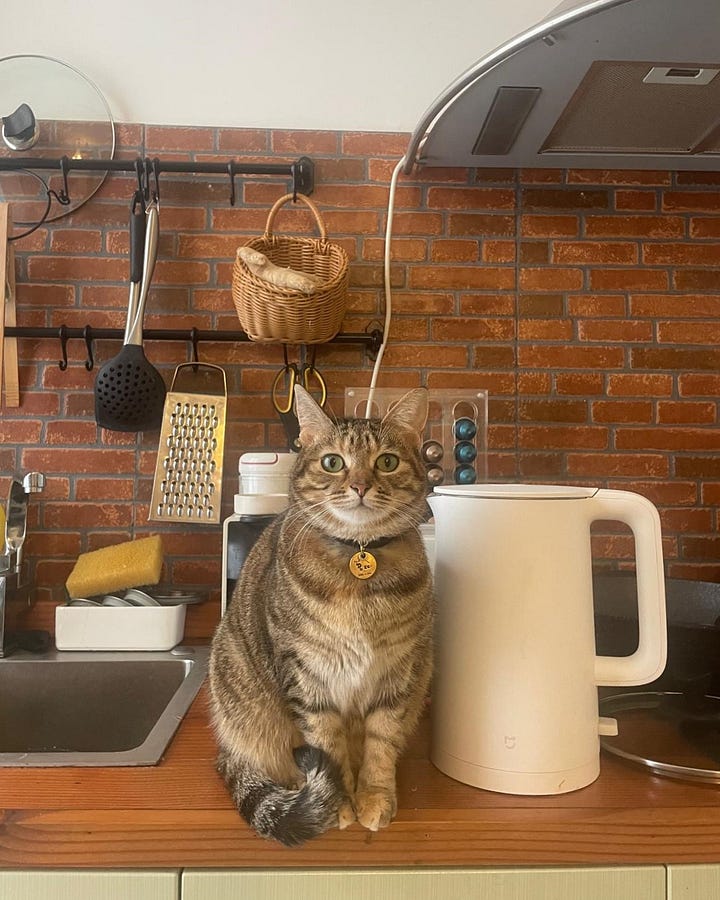
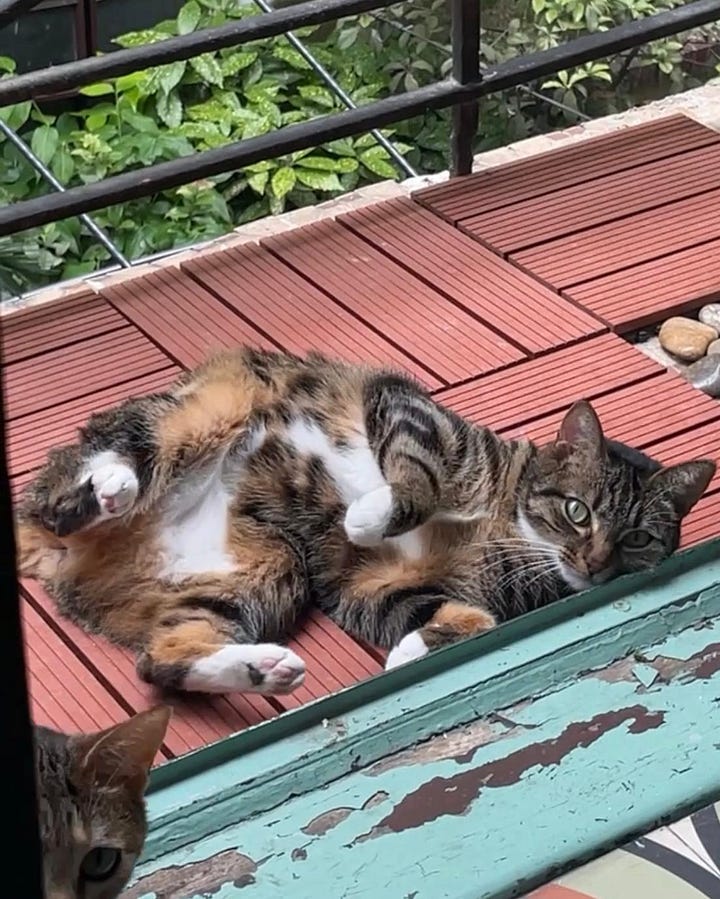
London.
When I finally got my visa to the UK, it was the day before my flight to London. I didn’t have time to arrange accommodation ahead of time, and I arrived in September during the peak season.
I spent the first month of my MSc degree hopping from one Airbnb to another.
With two cats.
I had no idea how the London rental market worked. My first Airbnb ended up being in a council house. I didn’t even know what a council house was.
Flat hunting in London with two cats was harder than I expected. So, I decided to negotiate directly with the landlady and became the lead tenant. After that, I found flatmates to share the place.
That landlady had seen it all. A true businesswoman. She warned me about putting three girls in one flat and said the energy could become competitive. She said other things too, but I won’t repeat them here. They cross certain stereotype lines.
Things didn’t go well in that flat.
Looking back, I take full responsibility for my part. There were definitely things I could’ve handled better. But at that point, I was exhausted, tired of flatmates, tired of moving, and tired of distractions.
What I really wanted was space to focus on building my startup in peace.
Since my first startup was a marketplace, I figured that learning how Airbnb works from the “seller” side would be valuable down the line.
So I took a risk.
Building a home.
Since it was my seventh move, this time I wanted to make it stick. I was also about to turn 30 and felt ready to build a home. I picked West Hampstead, a more convenient version of my dream neighborhood, Hampstead.
And because the flat number was 16B, the same as my childhood home, this place meant even more to me.
People don’t talk enough about this, but setting up a home is a real skill. It takes design thinking, especially when you want to run an Airbnb. Some key considerations for me were:
The place had to allow cats, and leather sofas were a no-go. Too easy to get scratched.
It needed to be a 2-bedroom, 2-bathroom apartment so I could have my own bathroom.
The guest room required an en-suite bathroom, so I could enjoy privacy most of the time.
The location had to be welcoming to tourists without being overly touristy or attracting the wrong crowd.
I wanted a neighborhood that was balanced, safe and comfortable, but not too exclusive, so I could trust guests would meet a certain standard without the area feeling too gated or sterile.
And, knowing how London works, a nice postcode was a good to have.
Further research I did:
I connected with an Airbnb host in the neighborhood to learn about his experience firsthand (thanks Ammar).
I used PriceLabs to check historical performance data for the area.
I kept in touch with former Airbnb hosts I’d stayed with and asked them lots of questions (many, many thanks to Superhost Akos!).
Running an Airbnb is a business, but it’s also personal.
Over time I realized getting great reviews isn’t about having a perfect place, because honestly, there’s no such thing as a perfect Airbnb. What really makes the difference is communication.
I found out that some people who book my place aren’t just booking a space. They actually want to meet and chat with me. And without me even asking, the guests I connected with would leave 5-star reviews.
Guests don’t want to feel like they’re just a transaction. They want to feel genuinely welcome. It’s way more about feelings than I ever expected.
Becoming a Superhost pushed me to become a better operator, a clearer communicator, and a sharper product thinker. Here are some key learnings I’ve picked up along the way:
It’s much easier to deal directly with a guest’s complaint and find a quick resolution than to rely on Airbnb Support. Arguing with customer service rarely works, and even when it does, it takes way more time.
If a guest has a complaint, always find a way to make it right. Let them cancel if they’re unhappy, and offer a small gesture like a chocolate bar if you mess up on minor things.
For bigger issues, an apology alone isn’t enough. You need to find a solution or at least show you’re making an effort.
Find a local community of Airbnb hosts early on. Having that network makes it easier to find backup plans and support when things go sideways.
Don’t underestimate how mentally and time-consuming running an Airbnb really is. Sure, guests have been ID-checked by Airbnb, but that doesn’t stop you from worrying every time you let strangers into your space.
Be ready for moments when Airbnb messes up, whether because of regulatory changes or technical glitches. Don’t expect to always hit your target occupancy rates.
The home in me.
As I write this, my Airbnb hosting journey is coming to a pause.
I never expected entrepreneurship to be such a deeply personal journey, one filled with extreme highs and lows. I’ve always believed I was resilient enough to handle it. But recently, I realized it’s been unfair to my family to keep putting them through unnecessary worry.
In chasing my career goals, I forgot how much time and space I hadn’t been able to give them. I was moving around a lot, and in the process, I left them carrying more than their share.
My grandmother, who’s in her 90s, is facing declining health.
This chapter, running Airbnb, building startups, and living far from home taught me what “home” really means. It’s not just a place. It’s people. It’s presence. It’s knowing where you’re needed, and showing up.
Now, it’s time for me to show up not for strangers, but for my own family.
More cakes to come x









